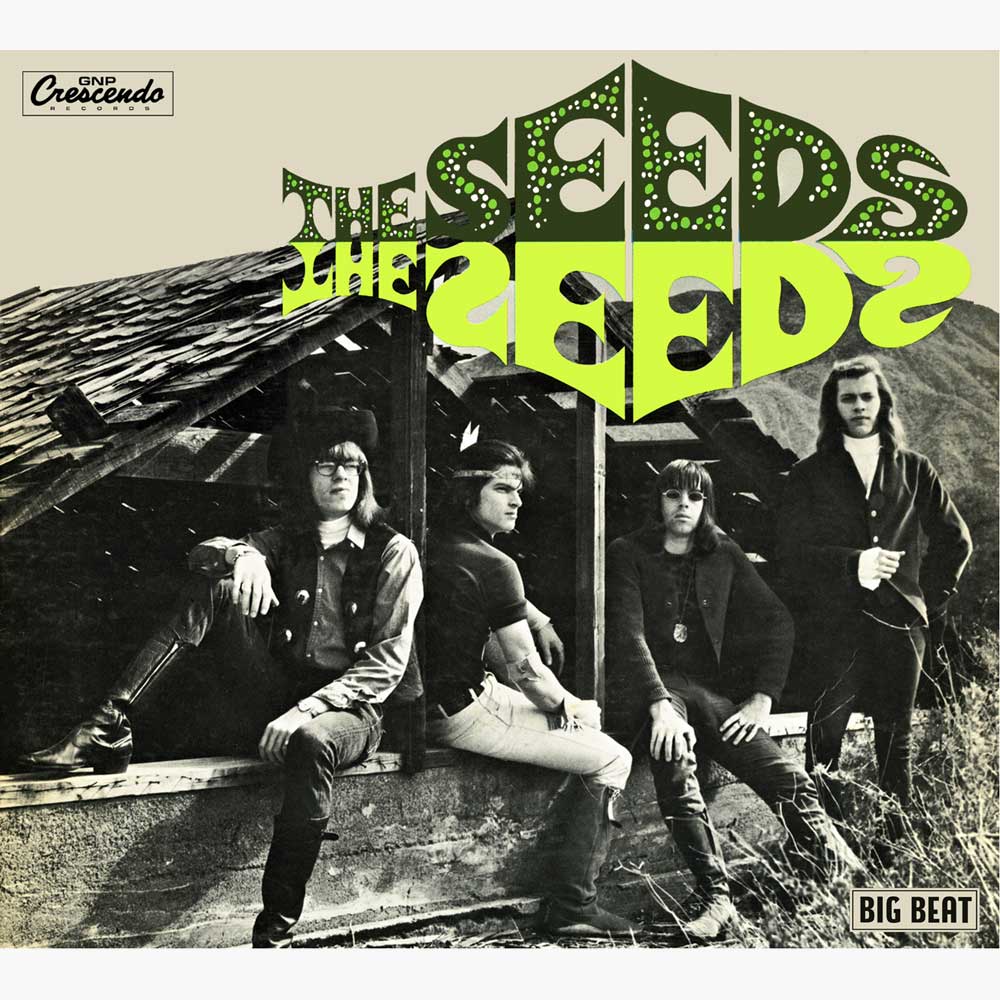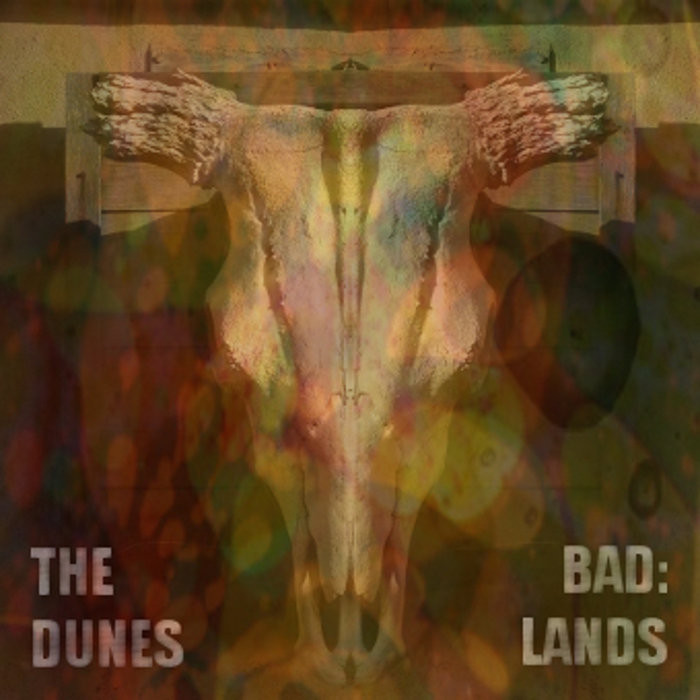All hail the sinister groove, and the propagators of the reinstatement of unbridled, dust-induced human savagery. Or something like that. Prepare to delve into the minds of one of Arizona's best new, up-and-coming desert psychedelia acts, The Night Collectors. Currently, the band's discography boasts several extended instrumental jams which, if indicative of what is to come, make me incredibly pleased to offer an insight into the development of this fantastic rock quintet. - Interview conducted by Daniel Sharman.
Dan: You guys are based in Tuscon,
Arizona. How many of you are in the band, and how did you meet?
Jeff: There are five of us and room for one (for now)
honorary member--we're really all huge jazz fans and prefer to keep our group
open to unique sessions. We've all been friends for years and have played
together extensively. I met Connor Gallaher (guitar/ vocals) in 2008 outside of
the venue formerly known as Plush. We were both watching and listening to a
muffled Silver Jews set. I had snuck in and gotten kicked out, he was just
calmly watching from the street. I met Casey Golden (drums) through the skateboarding
scene and we've been buddies for years now. I met Adan Martinez-Kee through
some painterly friends when I first moved to Tucson seven years ago. He's
really into cinematography and we became great friends gradually as we found
out we had a lot of mutual friends. I met John Bullock through some
skateboarding friends in 2009, he was playing with Connor and some of our
friends in a group called Via Entrada that was going through a break-up (this
band would later become Dream Sick) at the time. Connor, Casey, and Adan play
with me in another group called Secret Highway Secrets... but that's another
story...
Dan: Your sound is psychedelic, rock, blues, jazz, avant garde, ect. What are some of your influences?
Connor: A big influence is Les Rallizes Denudes (Hadaka no
Rallizes), also where we got our name. Jeff and I actually started the band as
a Les Rallizes Denudes cover band originally.
Dan: I hear a lot of John Cipollina and Michio Kurihara in
your guitar playing, I'm guessing those guys influence you in one way or another?
Connor: Yeah, totally! Ray Russell is another big one. He played with
Bill Fay, and he also did a bunch of jazz and free jazz stuff. Loren Connors is
also a huge influence for me (Ray Russel - http://youtu.be/wpVBwPjKvhg Bill Fay - https://www.youtu.be/psyKpeB2n9Q )
Dan: Those two fellas are quite a bit more avant garde than
Cipollina and Kurihara. The Night Collectors boast some lovely gear rigs, would you say you get your influence for tone from those guys?
Connor: I guess, a lot from those guys, and then just experimenting
with sound. Playing pedal steel has definitely influenced my guitar playing and
vice versa.
Dan: I'm not familiar with pedal steel playing myself, how does
that inspire you with your guitar work?
Connor: I guess mostly in terms of feel. Also there's the volume
pedal too. I listen to a lot steel guitar music which influences my steel
playing as well as my guitar playing.
Dan: Sweet, will we hear any pedal steel on any later Night
Collectors recordings?
Connor: I hope so at some point.
Dan: This is a bit of a stranger question, but how do you feel
about special effects being used in psychedelic music? I mean you guys play damn
well with your effects, but some guys just let the effects do the work for
them.
Connor: Ahh... Yes, I don't know I guess it can be cool sometimes, but
yeah there's definitely things that can get overused. A lot of bands today
seem to just drench everything in delay and reverb thus making their music
"psychedelic". I think effects are great as a way of adding colour, though.
Dan: Your latest record, Voice of the cicada, gives the
impression that your instrumentation is somewhat planned, but also fluid and
free-moving. How do you normally go about writing a Night Collectors song?
Connor: We definitely work a lot off of improvisation. Our track
Maybe Tomorrow was a completely improvised piece that just happened at the
beginning of a prectice. With a lot of our stuff we kind of start out with a
basic idea and move from that. We also have some songs now that have a more
traditional structure. We definitely find a lot ideas from just jamming.
Dan: The guitar playing on the recordings is a big part of the
sound, what guitars have you been playing through?
Connor: My main guitar is a Gibson SG3 with a Bigsby. I also
play a Fender Stratocaster XII occasionally. Jeff plays a telecaster and John
and Adan play an Epiphone SG bass.
Dan: How about amps, and effects?
Connor: We only
play through AIMS amplifiers, they were a company out Phoenix, Arizona that
only lasted a few years in the early 70's. I play through the Eclipsor which is
4x12 stack. Jeff uses the Dual Twelve which is a 2x12 combo and the bass goes
through the Vocalsonic IV which is a PA that has two 4x10 towers. All of them
have the same tube setup and are around 120watts. They're basically high
powered twin reverbs. Sometimes Jeff plays through a Fender Super Reverb if the
Dual Twelve AIMS is on the fritz. My pedalboard mostly consists of lots of
FUZZ! I use a rotating cast of different fuzz pedals. Pedals that are always on
my board are a Wattson FY-6 which is a Shin-ei SuperFuzz remake, a Sarno Earth
Drive, Zvex Super Duper, a Vox wah wah, Fulltone Deja Vibe and a Space echo
pedal.
Dan: Any comments on additional instruments, playing or otherwise?
Connor: Some of the saxophone playing on Voice of the Cicada seems
to have roots in traditional free-jazz. Mostly just guitars and the sax for now, but maybe more in the future. As I said, I also play pedal steel guitar and
definitely want to incorporate that in at some point. Yes, there is definitely
roots in free jazz.
Dan:How were all these instruments recorded (by that meaning how
was the song recorded in general)?
Connor: All the recordings that are up on our Bandcamp were recorded
live on my phone and then mixed in Garageband or Logic.
Dan: A question about the latest recording itself (correct at time of interview). What was the
importance of the cicada to the track itself?
Connor: In the Sonoran Desert, for months every year there are
cicadas that hang out in the mesquite trees and buzz incessantly. The polyphony
of thousands of cicadas buzzing at the same time can be likened to mind-melting
drone music. The cicada, like a lot of insects, is a sort of pan-cultural
symbol; they live on almost every continent and are a natural constant reminder
of the power of vibrations.
Dan: Additionally, living in an arid climate such as Arizona, how
would say the desert atmosphere shapes your, and other bands, distinct sound?
Connor: I think it definitely has a big effect. Being here in the
summer is rough. The heat will definitely take a number on you. With that I
think a lot of bands from here have a certain hallucinatory aspect to their
sound.
Dan: What's next for the night collectors?
Connor: I'm not sure right now, we're kind in a state of
reconfiguration. Two of the guys are really busy with school, but we have a
couple shows coming up so hopefully we'll be able to work on some new stuff. We
have some recordings from the beginning of the summer that we need to mix and
finish. We also want to record more
because we've changed a little bit since then. We also want to tour as soon as
possible!
Do You Even Psychedelic? would like to thank Connor for taking the time to complete this interview.
Make sure to check out the band's music here, all on free download.
Also make sure to like the band's Facebook page here, to stay up to date.


























